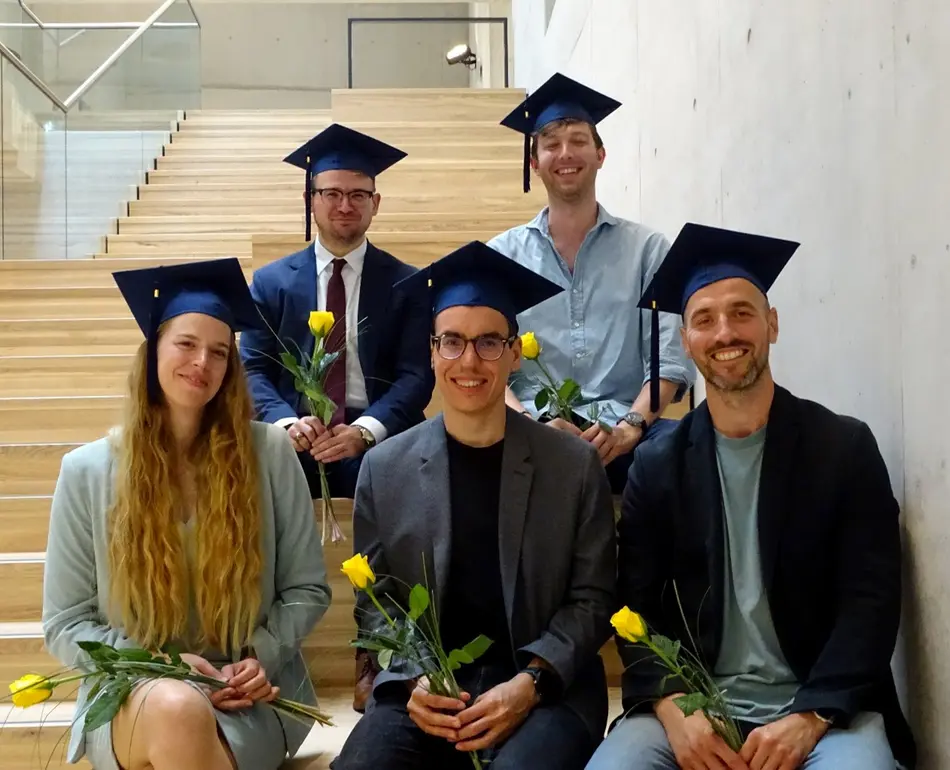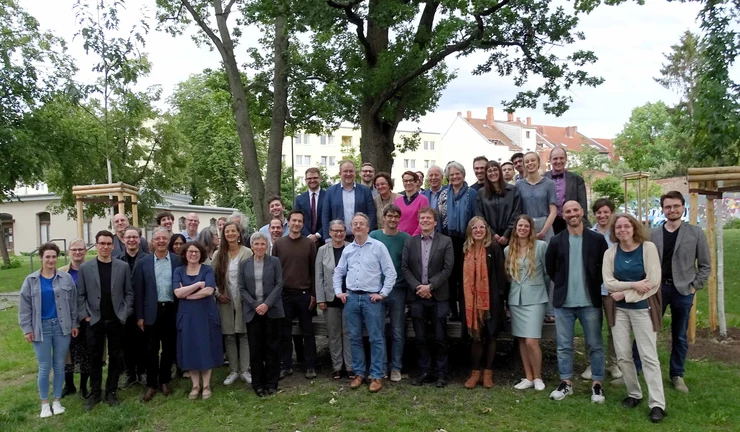The celebration began with the presentation of the book "Cosmic Connections" by Charles Taylor, who also took part in the event virtually. Moderated by Ulf Bohmann, Gesche Keding, Markus Kleinert and Hartmut Rosa discussed his book with him. Afterwards, five of the eight successful doctoral candidates from the past year were able to receive their doctoral hats in person from the directors of the Max-Weber-Kolleg, Hartmut Rosa and Jörg Rüpke – accompanied by music from Michelle Diegel and Amelie Schnelle, two students from the University of Erfurt's Music subject area. The doctoral dissertations were each presented with a laudatory speech by the reviewers, so that the guests were able to gain an impression of the diversity of topics and issues at the Max-Weber-Kolleg:
Max-Weber-Kolleg celebrates its successful graduates
Martin Repohl dealt with the "Relational quality of the material world. Perspectives of a world-relations sociological analysis of materiality". Blaz Ploj looked at "Religious Rituals in the Theatre of Plautus". Sará Heidl presented her work on "Event Religion. A Conceptual Approach with a Comparative Analysis of Three Case Studies". In his work entitled "'La ville eut l'éphémère honneur d'être comme la capitale du Royaume': A Spatial History of Charles IX's Royal Tour of France, 1564–1566 (Angoulême, Lyon, Sens)", Austin Collins analysed historical rituals of power. Finally, Lorenzo Cozzi has also taken a historical approach with "The Other Apocalypse. History and Prophecy in Nichals of Lyra's Postilla Litteralis".
It is worth noting that four of the dissertations were written as part of so-called cotutelle programmes, i.e. in collaboration with universities abroad, meaning that the doctoral students each spent at least a third of their doctoral studies at a university abroad. The partner institutions were the University of Graz (Austria), with which the Max-Weber-Kolleg runs a joint international Research Training Group (DFG), as well as the Fondazione Collegio San Carlo in Modena (Italy) and the University of Durham in the UK. Professor Hartmut Rosa, Director of the Max-Weber-Kolleg, explains: "Cotutelle procedures not only enable doctoral students to gain important international experience and make contacts, but also support the participating institutions in their internationalisation efforts and help them to experience new perspectives and cosmopolitanism."
The summer party ended with a cosy evening in the best weather.
... is an Institute for Advanced Study that regularly welcomes international fellows for research stays. It is also a permanent Research Training Group (DFG) in which early-stage researchers prepare and defend their qualification theses (doctorates and habilitations). The collaboration with the international fellows results in a variety of synergy effects and exciting encounters for the doctoral students and postdocs.


